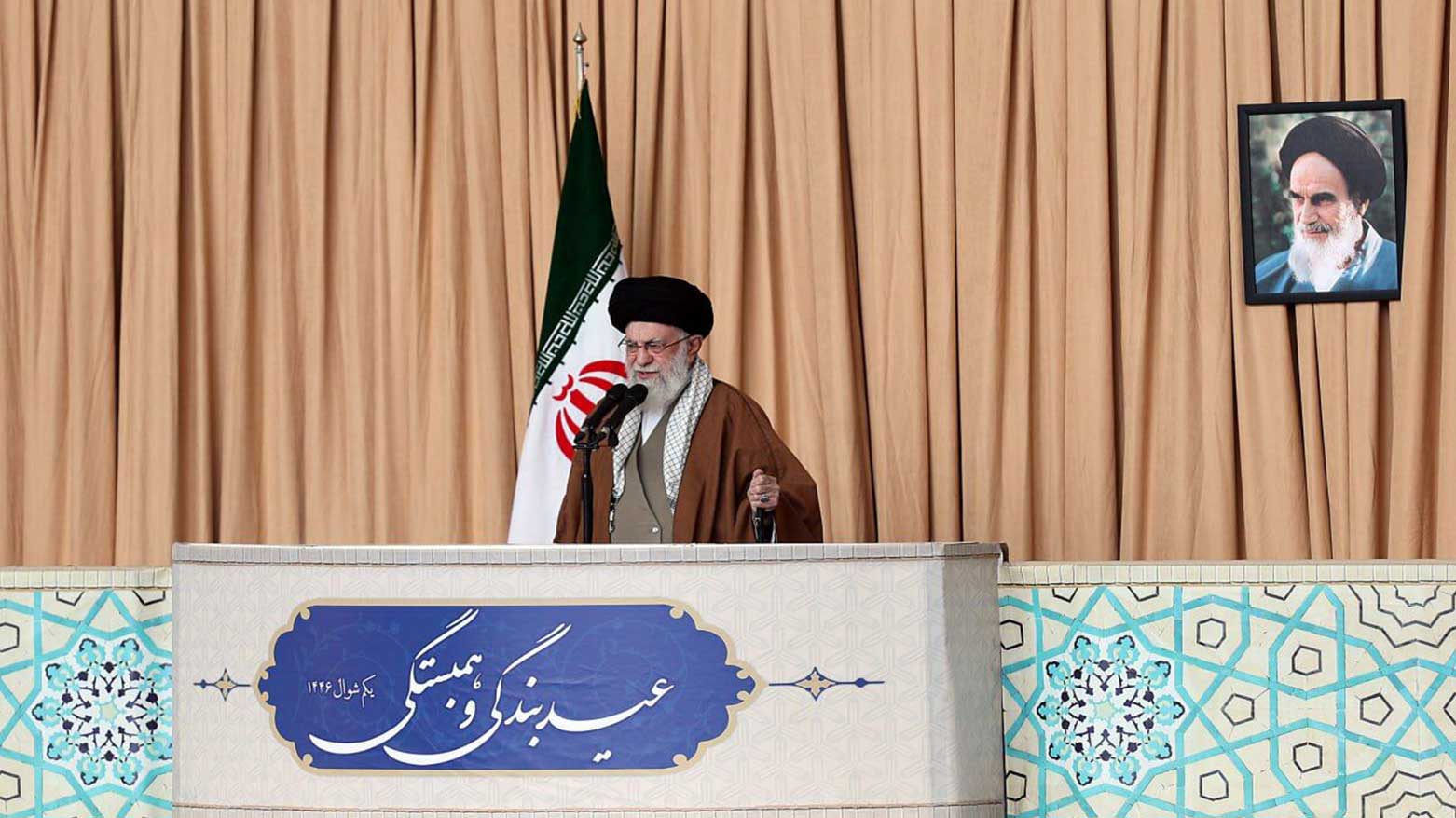Khamenei Warns of Retaliation Against U.S. and Israel: ‘They Will Receive a Heavy Blow’
“The Zionist regime, this criminal group, must be eradicated from Palestine; and by God’s grace and power, it will be eradicated,” he declared.

ERBIL (Kurdistan24) – Leader of the Islamic Revolution Ayatollah Seyyed Ali Khamenei issued a stark warning against the United States and Israel, declaring that any hostile action against Iran would be met with severe retaliation. His remarks came during a sermon at the Grand Mosalla mosque in Tehran, where he led this year’s Eid al-Fitr prayers on Monday.
“If any such act of evil is carried out, they will certainly receive a heavy blow in return,” Ayatollah Khamenei stated, referring to recent threats from Washington and Tel Aviv.
His speech also condemned Israel’s continued actions against Palestinians and Lebanese civilians, describing the “Zionist regime” as the region’s only true proxy force acting on behalf of colonialist powers. “The Zionist regime, this criminal group, must be eradicated from Palestine; and by God’s grace and power, it will be eradicated,” he declared.
The Iranian leader also criticized Israel for “routinely engaging in assassinations with the backing of the United States and Western governments”. He reaffirmed Iran’s position against foreign interference, stating that if adversaries attempted to sow discord within Iran, the Iranian people themselves would deliver a decisive response.
Khamenei’s remarks come amid heightened regional tensions following escalations in Gaza and Lebanon, as well as threats exchanged between Iran and Israel. The ongoing conflict has fueled concerns of a broader confrontation, with Iran repeatedly warning that any direct attack on its sovereignty will not go unanswered.
The United States has reinforced its commitment to Israel’s security, increasing military aid and intelligence cooperation. Meanwhile, Iran has continued to support resistance movements in the region, vowing to defend its allies against “Israeli aggression.”
Recent security developments have significantly weakened Iran’s regional influence. In Lebanon, the Iran-backed Hezbollah militia has suffered major setbacks, including increased Israeli military pressure and diminishing public support. In Syria, the collapse of the Assad regime has eliminated Iran’s long-standing influence in the country, cutting off a critical axis for Tehran's regional ambitions.
Meanwhile, in Yemen, continued heavy U.S. airstrikes on the Iran-backed Houthi rebels have crippled their ability to launch attacks in the Red Sea against commercial and military vessels. Additionally, under the Trump administration, the United States maximized pressure on the Iraqi government to sever financial ties with Iran and curb the power of Iran-backed Popular Mobilization Forces (PMF), further limiting Tehran’s ability to exert control in the region.
Despite its rhetoric, Iran’s ability to retaliate against the United States and Israel remains highly questionable. Military experts suggest that Iran would struggle to mount an effective response if subjected to a coordinated U.S. attack on its nuclear facilities and missile systems.
Recent reports confirm that Iran lacks the capability to strike critical U.S. military bases, particularly the Naval Support Facility Diego Garcia, a strategic outpost in the Indian Ocean that Iran has recently claimed it could target. However, military assessments dismiss this claim, asserting that Iran’s missile technology is insufficient to reach this base.
The U.S. has further reinforced its deterrence posture by deploying four B-2 stealth bombers to Diego Garcia, signaling its readiness to counter any Iranian threats with overwhelming force. Additionally, another aircraft carrier fleet was recently deployed to Middle Eastern waters to support the existing USS Harry S. Truman (CVN-75) in the Red Sea, with the USS Carl Vinson (CVN-70) reinforcing U.S. military presence in the region.
